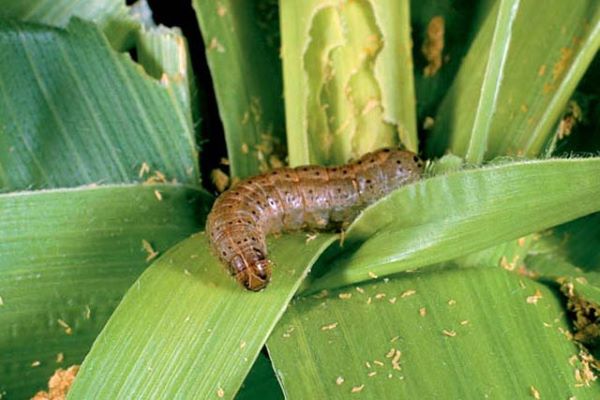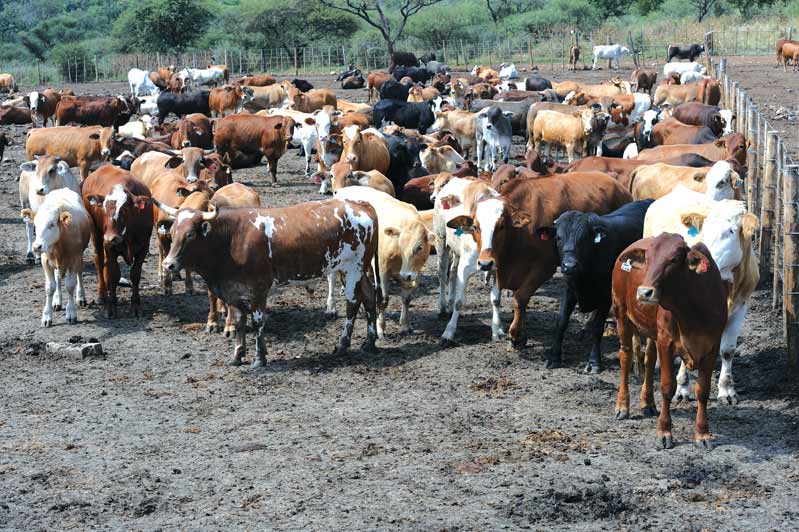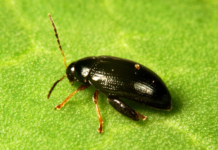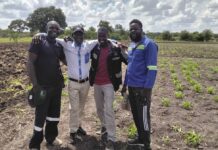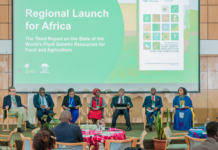By Jeff Kapembwa
Scientifically proven Integrated Pest Management (IPM) technologies is the remedy to perennial Fall Army Worms and other crop toxicities and should be applied in Africa and beyond for sustainable food security, says Food and Agriculture Organisation.
Estimates by the United Nations food agency show the continent is losing an estimated US$10 billion annually in maize yield losses spurred by FAW. The pest is feared to feed on up to 80 other crops if not controlled.
Over 70 countries in Africa, Asia and the Pacific, and the Near East, are reporting infestations of the pest. Fall Army Worms effect is devastating to all crops- knows no boundaries as it accelerates its march across the planet, notes FAO Director General of FAO, Mr. Qu Dongyu.
FAO Assistant Director-General, regional representative for Africa, Abebe Haile-Gabriel warns against laxity on IPM and other durable remedies with a call for scientists to stand up and share their research findings for onward sharing with various players’ chiefly farmers.
Addressing virtually a three-day workshop in Lusaka in a quest to find remedies to the taunting FAWs, Dr. Gabriel supports IPMs and challenged scientific efficient coordination among key partners from all relevant sectors in the region and strategise against FAWs and other pests dwarfing crop production chiefly in Africa at farmer’s level.
FAO through its Regional Africa Office has since the onset of FAW in or around 2016 continues to undertake collaboration with various partners in supporting countries to manage FAW sustainably.
Priority will be given to upscaling the best and proven practices to reach out to as many farmers as possible through strengthening countries’ capacities in various areas of FAW management.
Fall Armyworm, first detected in Central and Western Africa in early 2016 has quickly spread across Sub-Saharan Africa Countries and is present in almost all countries of the region-leaving significant impact on livelihood of maize farmers.
FAO and other partners undertook a series of actions at national, sub-regional and regional levels for sustainable management of the new pest using among other strategies, developing a Framework for Partnership and endorsed by the African Union.
Other efforts were; sharing information and knowledge on FAW through meetings and training sessions and development and sharing technical guides for identification and recommendations for management options.
Training of trainers on management options in all sub-regions of Africa for frontline crop protection and extension staff; developing a monitoring and early warning system; developing Farmer Field Schools curriculum, training master trainers, and initiating continent-wide implementation are other efforts to fight FAWs and other pest toxicities.
In most of the affected countries, FAO, he says, has supported the implementation of projects which achieved a number of promising results including the identification of best cultural practices, the use of bio-pesticides and biological control.
FAO has stepped up the fight and is implementing the Global Action for FAW Control, launched in 2019 to integrate, demonstrate and deliver innovative technologies and facilitate the adoption at scale of integrated pest management (IPM) strategies.
This has culminated into the Global Action being implemented in demonstration countries, Burkina Faso, Cameroon, Kenya and Malawi as demonstration depots. Many technologies have been developed for FAW control in the 4 sub-regions of Africa including; regular information sharing and technical support on monitoring, forecasting and early warning for Fall Armyworm.
Other initiatives are Preparation of Technical Guide on specific biological control and bio-pesticide options for the control of Fall Armyworm; Support for community uptake of biological control/agro-ecology approaches. Countries where such efforts have been initiated are showing adoption of validated IPM strategies.
And Norway cites the prevalence of FAWs and other plant toxins to lack safety equipment and training because of prolonged abuse of pesticides. This has in turn created negative impacts on people’s health as well as the environment. For instance, pesticides also kill natural enemies – eliminating natural control options – and frequent spraying might lead to resistance of the FAW.
Norway through its agency-NORAD is developing a new strategy on food security in our development policy to contribute to increased local and national food security through strengthening of small-scale food producers, their climate resilient food production and sustainable value chains. Norway provides wide support to IPM in general and FAW in particular.
“Fight against pests and diseases will be a natural and integrated part of the work on resilient food production,” says NORAD Director, Department for Climate and Environment – Mr. Stig Traavik in a virtual address.
The Norwegian Institute for Bioeconomy Research (NIBIO) recently launched a new project in Malawi – Malawi Digital Plant Health Service, arguably to help predict, identify, monitor and control outbreaks of various pests and diseases financed by NORAD.
When rolled out, it will be a tool for improved strategies for IPM targeted at the main crops and pests in Malawi.
Zambia Agriculture Research Institute (ZARI) in collaboration with the International Center for Research in Agroforestry (ICRAF) among other players is undertaking research in various aspects to find lasting solutions to pest toxicity and eradication of FAWs.
ZARI executive Director, Ivor Mukuka says the research institute notes the extent of devastation caused by the FAW pest on crop production such as rice, sorghum and millet which has reduced the income of the small scale farmers since its dawn eight years ago hence various remedies are being sought.
ZARI with other players have focused on seeking effectively and sustainably managing this pest through trials to determine the efficacy of different mild synthetic pesticides, botanicals and biopesticides.
“The institute has been evaluating several indigenous substances such as ash, chilli and sand against FAW. Agroecological practices aimed at improving plant vigour and population of natural enemies have also been tested as you will learn from presentations that will be made by our scientists.” Mr. Mukuka said.
Zambia had in recent years been invaded by FAWs-declared a national disaster after affecting three quarters of the country’s hectare. Estimates by FAO showed the country had spent over US$3 million to control.


